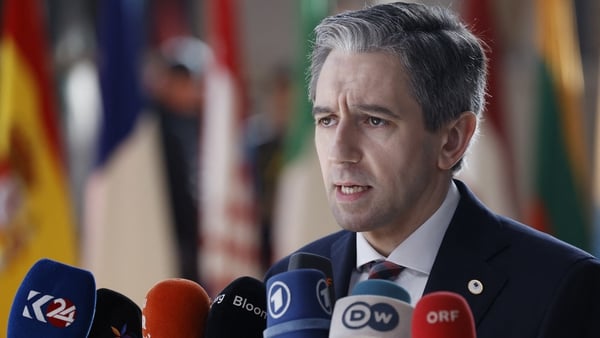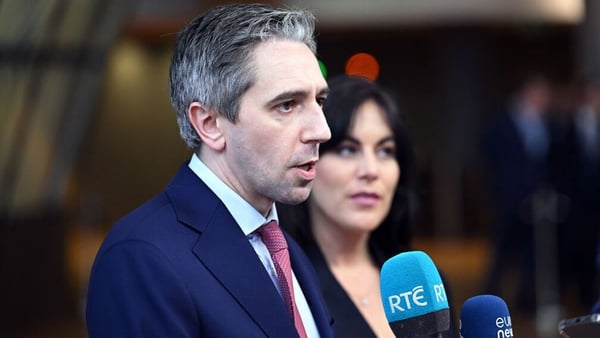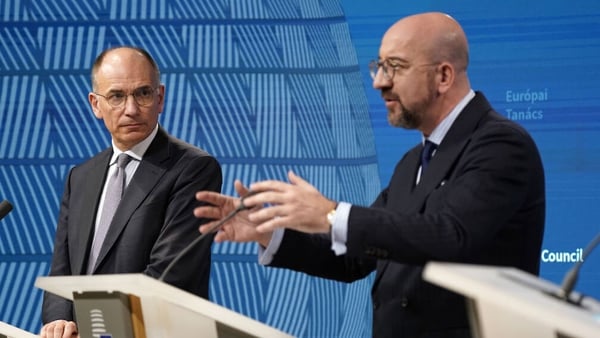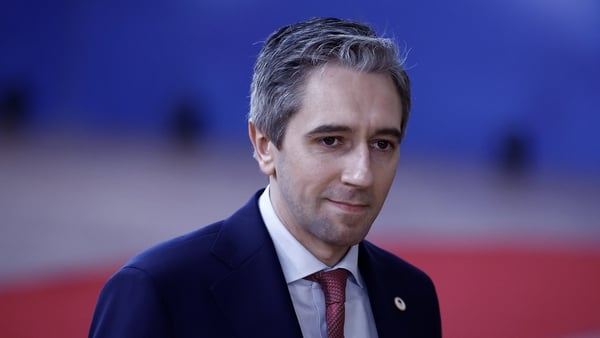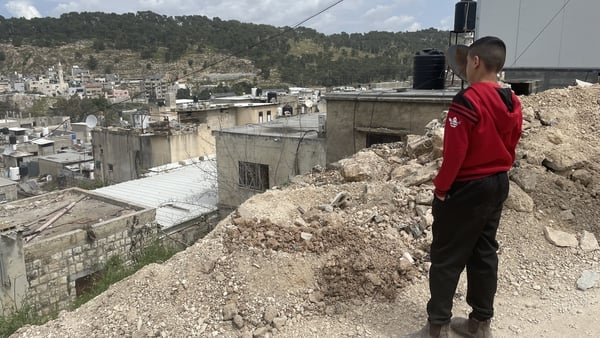The Taoiseach said full vaccination was now the most important protective weapon Ireland had against the Delta variant of Covid-19, as it spreads rapidly across Europe.
Speaking in Brussels ahead of an EU summit, Micheál Martin said there was an inevitability that the Delta variant would be the dominant strain across the continent by the end of the summer.
The Taoiseach said: "We need to have a full assessment of the prevalence of the Delta variant right now across Europe. It's not just the UK anymore. There are very high numbers in Portugal, for example.
"There is a sense, and the ECDC has said this, that this is going to become the dominant variant across Europe so that has to be weighed up in terms of any further measures that are taken.
"We will examine all assessments of this and any proposals, but when I see what is happening across Europe ... there is a sense of inevitability about the progress of the Delta variant across Europe and that then clearly has implications for the type of restrictions that one would impose.
"Our authorities will be examining that from a clinical perspective … because the balance of risk has changed with the Delta variant.
"We know now the sooner we get people vaccinated we reduce significantly the risk from the Delta variant."
His comments came as the HSE said there have now been 210 cases of the Delta variant in Ireland.
The Taoiseach said full vaccination was now the most important protective weapon Ireland had against the Delta variant of Covid-19, as it spreads rapidly across Europe | https://t.co/eVsG8BTeTt pic.twitter.com/9krwjhqD5D
— RTÉ News (@rtenews) June 24, 2021
This evening, the Department of Health reported 304 additional cases of Covid-19. The number of people in intensive care is unchanged at 13, with 47 patients in hospital.
The Taoiseach said he did not foresee a dramatic change of course at EU level on the handling of the pandemic as a result of the Delta variant.
He said that the emergence of more infectious variants had been factored in to plans at EU level to open up Europe for tourist travel, and that individual member states would implement their own measures where appropriate.
"There may be different member state responses to the impact of the Delta variant. Vaccination is going to be key in this respect, the pace of vaccination, particularly the second dose," he told reporters.
He said the decision to shorten the interval between the first and second AstraZeneca doses in Ireland would mean a "significant" increase in the numbers of those fully vaccinated in the coming weeks.
"We'll continue to explore other areas if we can to speed up the vaccination programme, because it's the vaccines that will give protection.
"I'm delighted that in Ireland, at one level, in the age cohorts that are currently vaccinated, the vaccination uptake has been very, very high.
"The incidence of Covid in the over 65s is very, very low. In the 50 to 65 age group [infection] is also decreasing at a rapid rate."
More children being infected with Delta variant - GP
More children are being infected with the Delta variant of Covid-19, according to a GP in Northern Ireland.
Dr Tom Black, who is also chair of the British Medical Association in NI, said more children are presenting with symptoms similar to upper respiratory tract infections.
Yesterday, the North's Public Health Agency said around half of Covid-19 positive cases are now indicative of the Delta variant.
Speaking on RTÉ's Morning Ireland, Dr Black said Covid-19 vaccines are holding up well in relation to the variant, and hospitalisations and ICU numbers remain low.
The Derry and Strabane area shows the highest rates of infections and pop-up vaccine clinics in Derry are concentrating on people aged between 40 and 60.
Meanwhile, the chairman of the Irish Medical Organisation's GP sub-committee said cases of the Delta variant in Co Donegal are rising in line with the situation in Derry.
Dr Denis McCauley said indoor socialising should be limited if case numbers continue to rise.
He warned that a surge in cases could affect testing capacity in the country, and last month's cyber attack on the Health Service Executive's IT systems is continuing to hinder the amount of information on cases that is available.
Dr Mary Favier, who is a member of the National Public Health Emergency Team, said the cyber attack is limiting interactions GPs can have with Covid-19 positive patients in relation to isolation and testing.
Speaking on the same programme, she said it is "inevitable" that some young people will get quite sick as a result of a rise in cases of the Delta variant.
She also said many GPs favour delaying the scheduled reopening of society for two to three more weeks.
Ministers have said it is too early to make a final decision on the next phase of easing of restrictions, which is set for 5 July.
Minister of State Jack Chambers said the emergence of the Delta variant in Ireland is very concerning, but that the Government still has a plan for further reopening next month.
He said there is stability in case numbers, the vaccination programme has been scaled up and there is a reduction in ICU numbers, which are all positive indicators.
Mr Chambers said there have been some very positive pilot matches for the safe return of spectators and efforts are being made to scale up capacity and get "thousands back" in venues.
Tánaiste Leo Varadkar said yesterday that a final decision over 5 July cannot be made until next Thursday or Friday when the Government has up to date public health advice.



